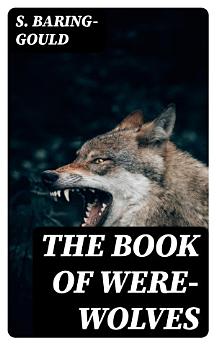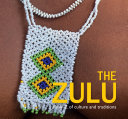The Book of Were-Wolves
S. Baring-Gould
Set 2022 · DigiCat
E-book
136
Mga Page
family_home
Kwalipikado
info
reportHindi na-verify ang mga rating at review Matuto Pa
Tungkol sa ebook na ito
S. Baring-Gould's "The Book of Were-Wolves" is a seminal text in the study of lycanthropy and its cultural manifestations, weaving together folklore, history, and acute psychological insight. Written in the late 19th century, the book is characterized by a meticulous blend of empirical research and captivating narrative style, reflecting the era's burgeoning interest in the paranormal as well as the romantic ideals of the Gothic. Baring-Gould examines a plethora of werewolf legends from various cultures, grounding supernatural lore in tangible reality and exploring the psychological implications of such transformations, thus enriching the literary context of horror and the uncanny that thrived during the Victorian period. S. Baring-Gould was not only a prolific writer but an astute scholar with a deep-seated fascination for mythology and folklore, having published extensively on various topics, including religious studies and local history. His diverse background and interests informed his examination of lycanthropy; witnessing the complexities of human nature and history led him to explore how mythologies evolve from societal fears and desires. Baring-Gould's insight into the human psyche, combined with his thorough research, allows readers to encounter werewolves not merely as monsters but as reflections of deeper truths. In "The Book of Were-Wolves," readers are invited to traverse the thin boundary between reality and myth. The book serves well both scholars of folklore and casual readers who crave a deeper understanding of the mythos surrounding werewolves. Baring-Gould's exploration will captivate anyone interested in the darker aspects of human nature and the lore that emerges from it, making this an essential read for those drawn to the enigmatic and the eerie.
Tungkol sa may-akda
Sabine Baring-Gould (1834–1924) was an English hagiographer, antiquarian, novelist, and eclectic scholar. His literary career spans a wide range of subjects, but he is perhaps best known for his book 'The Book of Were-Wolves' (1865), which is one of the most comprehensive studies of werewolf legends in English literature. Baring-Gould's approach to the topic was a blend of folklore, history, and anthropological insight, and his work remains a significant resource on lycanthropy and supernatural beliefs. Educated at Clare College, Cambridge, he took holy orders and became the rector of Lewtrenchard in Devon. His output was vast, with over 1,200 publications to his name, ranging from theology to folk songs. Notably, he also authored the hymn 'Onward, Christian Soldiers.' Baring-Gould's literary style is recognized for its erudition, as well as its approachable and narrative-driven exposition. His contributions to the folklore and myths of the British Isles helped to document and preserve these cultural narratives for future generations. The intersection of his religious background with his fascination for the occult and the supernatural gave his work a unique and penetrating perspective into the darker sides of Victorian beliefs and the timeless human fascination with the otherworldly.
I-rate ang e-book na ito
Ipalaam sa amin ang iyong opinyon.
Impormasyon sa pagbabasa
Mga smartphone at tablet
I-install ang Google Play Books app para sa Android at iPad/iPhone. Awtomatiko itong nagsi-sync sa account mo at nagbibigay-daan sa iyong magbasa online o offline nasaan ka man.
Mga laptop at computer
Maaari kang makinig sa mga audiobook na binili sa Google Play gamit ang web browser ng iyong computer.
Mga eReader at iba pang mga device
Para magbasa tungkol sa mga e-ink device gaya ng mga Kobo eReader, kakailanganin mong mag-download ng file at ilipat ito sa iyong device. Sundin ang mga detalyadong tagubilin sa Help Center para mailipat ang mga file sa mga sinusuportahang eReader.







